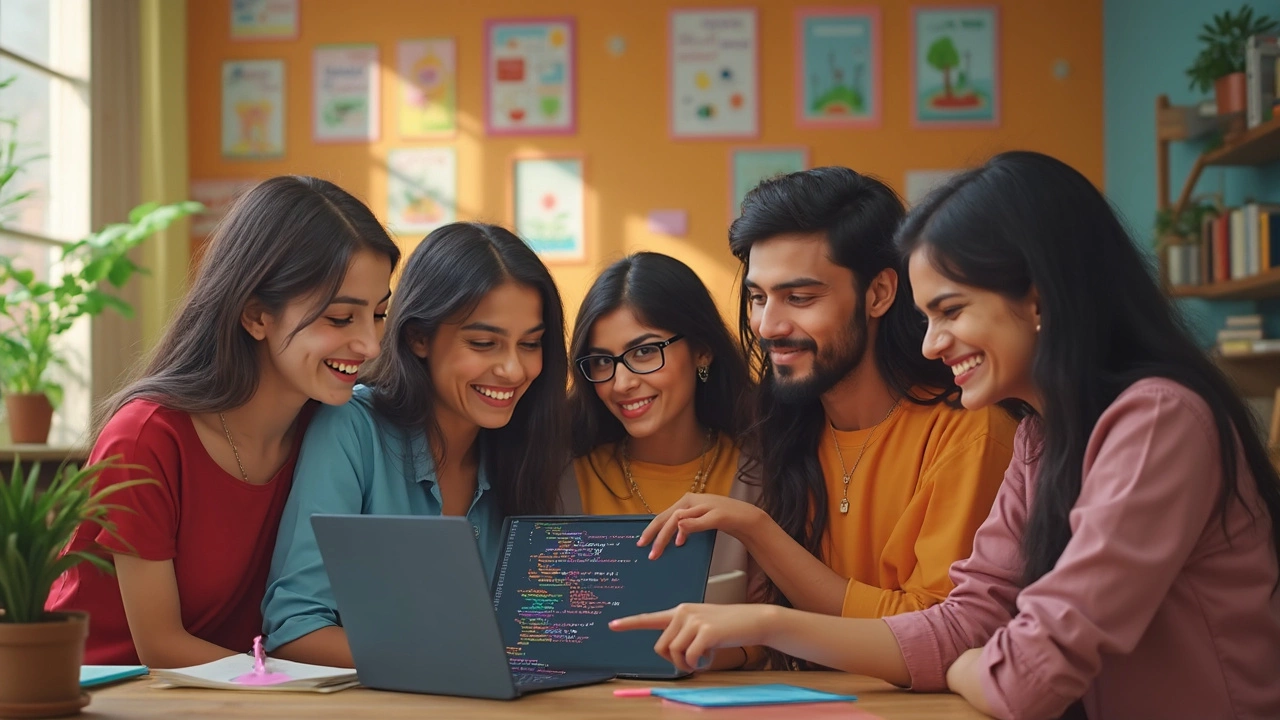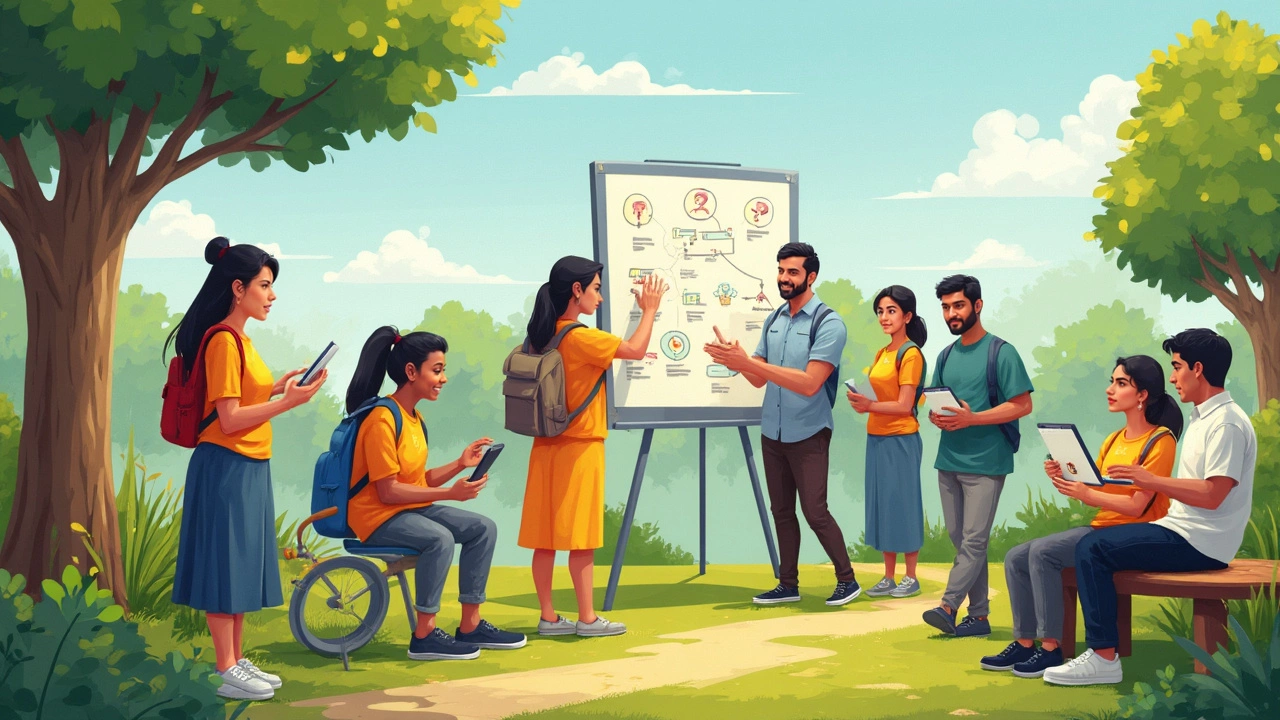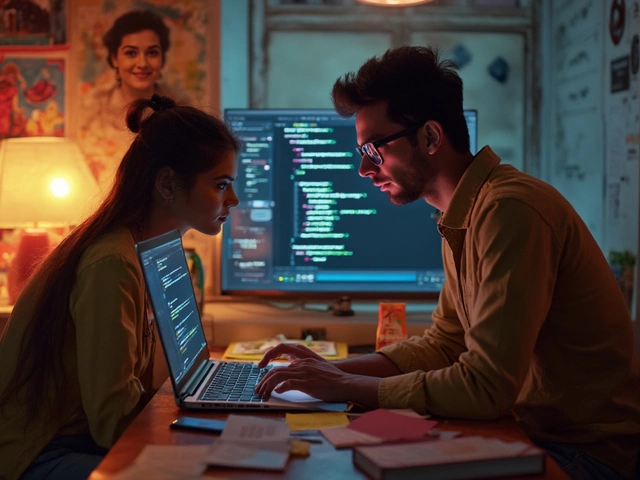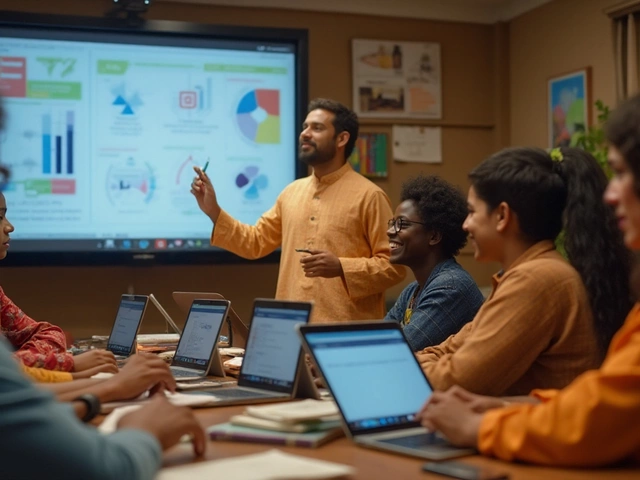
The first time you look at a screen full of code, it can feel like you’re staring at a foreign language. Honestly, that’s kind of what you’re doing. Coding isn’t something most people pick up in school or at home unless they go out of their way. So it’s totally normal to feel overwhelmed at the start.
But here’s a fact: every coder you’ve ever met once had zero clue what “Python” or “HTML” meant. Whether you want to build an app, land a tech job, or just see what’s possible, the struggle is real—but it’s also totally beatable. There’s no secret genius gene needed. Most beginners just need a little patience, some guidance, and a willingness to try (and mess up).
Instead of memorizing endless terms or writing perfect code from day one, what actually works is learning to break down problems. That’s pretty much what code is—a set of clear instructions. At first, it might take you an hour to solve a puzzle that a more experienced coder knocks out in five minutes. That’s completely fine. You’re not alone, and nobody’s expecting you to become a coding wizard overnight.
- Why Coding Feels Hard at First
- What Makes Coding Easier Than You Think
- Biggest Challenges Beginners Face
- Tips for Getting Started (and Sticking With It)
- What to Expect Once You Push Through
Why Coding Feels Hard at First
Getting started with coding can hit like a ton of bricks. Most people aren’t used to talking to computers, and suddenly, every tiny mistake—a missing semicolon, misplaced bracket, or even a typo—can break everything. Computers are super literal. If you don’t tell them exactly what you mean, they just don’t get it.
Another thing that throws people off is the vocabulary. You’ll hear words like “variable,” “loop,” and “function” right away. These aren’t part of everyday language, so it almost feels like your brain’s rewiring itself to learn a set of rules from scratch. Plus, there’s a mountain of tools and languages out there, from Python to JavaScript, and each one comes with its own weird quirks and standards.
Let’s be real: most schools don’t cover coding in detail, so unless you’re lucky, you have to hunt down the basics yourself. That’s why a lot of beginners hit a wall—they’re trying to self-teach in an environment filled with questions and very few obvious answers.
- Error messages can be cryptic. Something like “SyntaxError: Unexpected token” isn’t exactly beginner-friendly, and can send you straight to Google for help.
- Feedback isn’t instant. Unlike learning guitar or riding a bike, you often don’t feel progress until you finally solve a problem after a lot of trial and error.
- Impostor syndrome is common. Even experienced coders sometimes feel like they don’t belong, and it’s easy for beginners to wonder if they’re just “not cut out for it.”
The good news? Every coder has faced these headaches. The struggle is usually about making peace with feeling lost until things start to click—and sticking with it long enough to see that happen.
What Makes Coding Easier Than You Think
A lot of people picture coding as endless lines of weird text and hardcore math. In reality, most beginners can write useful code after just a few hours of hands-on practice. The real game changer? Coding is more about logic than about knowing every term or memorizing complex formulas.
A huge reason why coding isn’t as tough as people expect is the amount of support and resources out there. These days, beginner-friendly tools (like Scratch and Blockly) let you learn by dragging and dropping rather than pressing random buttons you don’t understand. Even with grown-up languages like Python, there are step-by-step tutorials designed just for newbies.
You’re also not working alone. If you get stuck, answers are everywhere. Sites like Stack Overflow, Codecademy, and even YouTube offer thousands of free guides. When Harvard put its CS50 course online for anyone to join, over a million people worldwide signed up—proof that coding isn’t locked away for math whizzes or Silicon Valley types.
There are also tons of instant feedback options. When you code, you get to see what went wrong right away. Make a change, hit run, and see what happens. This fast feedback loop helps you learn much quicker than with textbooks.
Check out this quick breakdown of the most popular beginner resources and their user counts as of 2025:
| Resource | Active Users |
|---|---|
| Codecademy | 45 million+ |
| freeCodeCamp | 20 million+ |
| Stack Overflow | 15 million+ |
| CS50 (Harvard) | 1 million+ |
Another thing—most basic apps and websites run on some of the simplest languages to learn, like HTML, CSS, and JavaScript. You don’t have to master C++ just to make something cool.
And let’s not forget real-life examples. There are people of all ages, even kids as young as eight, learning to code at after-school clubs or from YouTube. If they can start, you can too. The trick? Don’t try to swallow it all at once. Focus on one project, one concept, or one tiny chunk at a time. The wins will add up before you know it.

Biggest Challenges Beginners Face
The most common hurdle? Information overload. When you first start learning to code, you bump into dozens of new terms. Variables, arrays, loops — it feels like you need to learn a whole new dictionary. On top of that, tutorials online suggest different languages, tools, and ways to do the same thing. That can make you wonder, am I even learning the right stuff?
Sticking with it is another major issue. According to a real survey by Codecademy, around 35% of people quit before finishing their first coding course. They hit a wall because the excitement fades and projects start feeling more like homework. When you get errors (and you will), it’s frustrating. Even pros get stuck on bugs, so don’t expect a smooth ride from the start.
The lack of hands-on practice is another problem. Coding classes and tutorials sometimes give you only tiny exercises or too much theory. If you’re just reading or copying code without building your own stuff, it’s hard to connect the dots.
- coding is a mental workout and it’s normal to feel tired or stuck.
- Not asking for help slows progress — but beginners sometimes worry about looking silly.
- Too many resources can actually slow you down. Decision fatigue is real!
Here’s some eye-opening data showing what beginners struggle with the most:
| Challenge | Percent of Beginners Struggling (%) |
|---|---|
| Debugging and error messages | 46 |
| Choosing a language | 31 |
| Staying motivated | 40 |
| Understanding syntax | 34 |
Notice how debugging tops the list. Deciphering weird error messages or why your code won’t work is maddening at first. But over time, you get better at spotting problems and fixing them. The trick is: don’t expect instant results or smooth progress every day. Try to celebrate small wins, and don’t hesitate to jump into forums or Discord channels for help. Most beginners move forward faster by talking with others, not just grinding in silence.
Tips for Getting Started (and Sticking With It)
The first step to learning to code is picking one language and one project. Don’t jump around between ten different languages—choose something popular like Python or JavaScript. These are both friendly for newbies, with tons of resources and communities to help you out. The free CS50 course from Harvard, for example, starts with zero experience and gently ramps up, and over 3 million people have tried that path.
Set clear, bite-sized goals. Want to build a simple calculator app or get a web page online? Break it into steps, and focus on finishing tiny tasks. This way, you get quick wins, which keeps your motivation up. Statistically, people who write down daily coding goals are 42% more likely to complete projects compared to those who don’t.
Here’s a tough one: don’t just watch videos or read articles. Actually coding matters. You can read a hundred guitar books and never learn to play—same for programming. Use sites like LeetCode, Replit, or even the built-in code playgrounds on freeCodeCamp to type out the exercises yourself.
- Start a “coding streak”—aim for even 10 minutes a day and mark your calendar every time you succeed. That visual progress is surprisingly motivating.
- Don’t struggle in silence. Use platforms like Stack Overflow, Reddit r/learnprogramming, or even Discord groups where you can ask dumb questions (trust me, everyone asked them at some point).
- Review and fix your own code. Debugging teaches you way more than watching someone else do it.
Accountability helps, too. Some people join live online classes, while others team up with a friend and check in each week. Coding bootcamps report that group collaboration and regular feedback almost doubles completion rates for beginners. Check out this comparison:
| Learning Approach | Completion Rate |
|---|---|
| Solo Self-paced | 27% |
| Peer Group / Bootcamp | 49% |
Remember, you’re not racing anyone. Messing up is expected, and every coding bug is a learning moment. If you want practical progress, just keep showing up and tackling one new topic at a time. Soon enough, you’ll look back and laugh at those early, confusing error messages.

What to Expect Once You Push Through
Once you get past the first hurdles of learning to code, things start to click in ways you probably didn’t expect. Suddenly, reading and writing code feels less like trying to decode ancient secrets and more like fixing a leaky faucet—you know where to look, and you actually feel like you can solve problems.
Here’s something cool: as you practice, you’ll build what’s called “muscle memory” for syntax. It’s just like typing without looking at the keyboard after a while or driving to work without thinking about each turn. Tasks that seemed impossible at first—like setting up a simple webpage—start to become almost automatic.
Don’t be surprised if your confidence gets a big boost. When you finally debug a stubborn error or create your first small project from scratch, that sense of pride is pretty real. You’ll also notice you start thinking differently, breaking big problems into smaller steps, and approaching tech headaches (even outside of coding) with less panic and more logic.
The world opens up in a bunch of ways. Maybe you build a website for your band, automate boring stuff at your current job, or pass a coding test that lands you an internship. If you stick with it, you’ll start picking up more skills fast—like version control (think Git), working with APIs, or collaborating with other coders online. A 2023 survey by Stack Overflow showed that over 70% of working developers don’t have a computer science degree, proving that consistent practice works way better than formal training alone.
- More job options: Tech companies, startups, and even non-tech businesses often want people with coding skills, even for roles outside of engineering.
- Ability to fix and build things on your own, not just rely on others or buy extra software.
- Entrance into an online community that’s surprisingly helpful—places like Stack Overflow, freeCodeCamp, and Reddit.
Once you get over the initial hump, what felt impossible at the start of your coding journey honestly starts to feel like second nature. You’ll look back and wonder why you felt stuck for so long in the first place.





